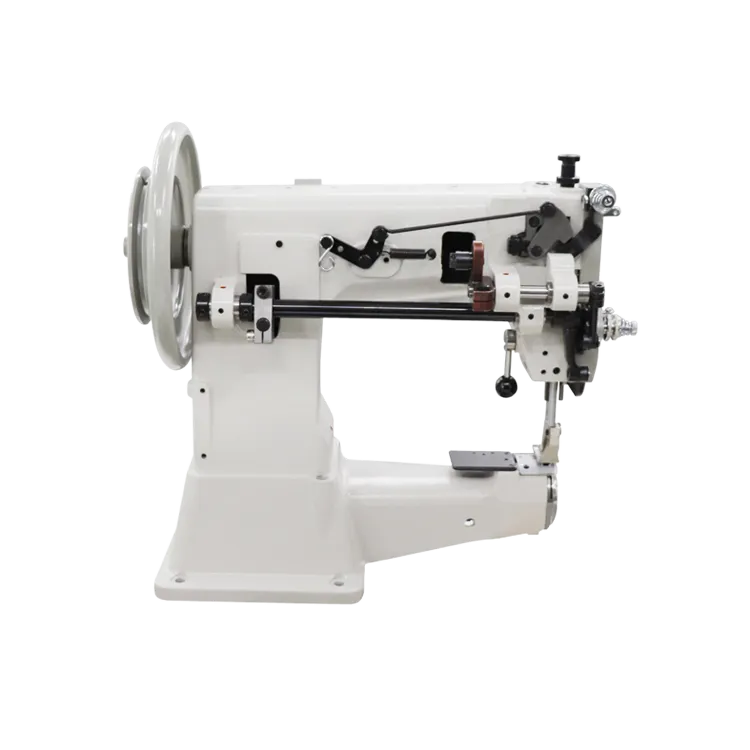heavy duty sewing machine motor
Heavy Duty Sewing Machine Motors A Comprehensive Guide
When it comes to industrial sewing, the quality and efficiency of your equipment can make all the difference. Among the most critical components of any heavy-duty sewing machine is its motor. A heavy-duty sewing machine motor is designed to handle the rigors of high-volume production, delivering the power and precision necessary for both professionals and serious hobbyists alike. This article explores the various aspects of heavy-duty sewing machine motors, including their types, features, and benefits.
Understanding Heavy-Duty Sewing Machine Motors
Heavy-duty sewing machines are engineered for demanding tasks, whether it’s sewing thick fabrics like leather, canvas, or multiple layers of fabric. The motor is arguably the heart of these machines, providing the necessary torque and speed to handle challenging projects. These motors can be broadly classified into two categories servo motors and clutch motors.
1. Servo Motors Servo motors are becoming increasingly popular in heavy-duty sewing applications due to their efficiency and precision. Unlike traditional clutch motors, which run at a constant speed, servo motors can provide variable speeds. This flexibility enables users to control the sewing speed more accurately, allowing for delicate work as well as heavy stitching. Additionally, servo motors consume less energy, resulting in lower electricity bills and a reduced carbon footprint.
2. Clutch Motors Clutch motors are the traditional choice for heavy-duty sewing machines. They operate by connecting the motor directly to the sewing machine's flywheel. This direct connection offers strong torque, but at the cost of efficiency, as they typically consume power even when the machine is not in use. However, many users prefer clutch motors for their reliability and ability to handle continuous use over extended periods.
Key Features to Consider
When selecting a heavy-duty sewing machine motor, there are several important features to consider
- Power Rating Heavy-duty motors typically have a power rating measured in watts or horsepower. Higher power ratings generally indicate a motor’s capacity to sew through tougher materials without stalling.
- Speed Control Look for motors that offer variable speed control. This feature allows you to adjust the sewing speed, which can be crucial for intricate tasks that require precision.
- Noise Level Motors can produce varying levels of noise. Servo motors are usually quieter than clutch motors, which is an important factor if you'll be working in a shared space.
heavy duty sewing machine motor

- Installation Some motors are easier to install than others. If you're not particularly handy, consider choosing a motor that comes with clear instructions or even pre-assembled components.
- Durability Given the nature of heavy-duty work, the motor should be constructed from high-quality materials that can withstand wear and tear over time
. Look for motors with warranties that cover mechanical failures.Benefits of Heavy-Duty Motors
Investing in a heavy-duty sewing machine motor comes with multiple advantages
- Enhanced Performance These motors are designed to provide consistent power, improving overall sewing performance and reducing the likelihood of machine jams.
- Versatility With a heavy-duty motor, you can manage a wider range of projects, from upholstery to garment alterations, without needing to switch machines.
- Efficiency The ability to control speed and power usage means that you can work more efficiently, saving both time and resources. This is particularly beneficial in a production setting.
- Longevity High-quality motors tend to last longer, making them a cost-effective investment for serious sewing professionals.
Conclusion
In the realm of sewing, particularly for those who engage in heavy-duty tasks, the motor is a pivotal element that can significantly impact productivity and quality. Whether you choose a servo motor for its precision and energy efficiency or a clutch motor for its consistent torque, understanding the features and benefits of heavy-duty motors will help you make an informed decision. From professional tailors to avid seamstresses, selecting the right motor can elevate your sewing experience, allowing you to tackle complex projects with ease and confidence. With the right heavy-duty sewing machine motor, you'll have the power you need to bring your creative visions to life.
-
Heavy Duty Leather Sewing Machine: A Must-Have for Professional LeatherworkNewsMay.28,2025
-
Leather Sewing Machine: Essential for High-Quality LeathercraftNewsMay.28,2025
-
Extra Heavy Duty Sewing Machine for Premium Leather ApplicationsNewsMay.28,2025
-
Walking Foot Cylinder Arm Sewing Machine: Precision and Power CombinedNewsMay.28,2025
-
Industrial Cylinder Arm Sewing Machine: Engineered for High-Performance StitchingNewsMay.28,2025
-
Cylinder Bed Sewing Machine: A Powerful Solution for Precision StitchingNewsMay.28,2025
-
Zigzag Sewing MachineNewsMay.12,2025





























